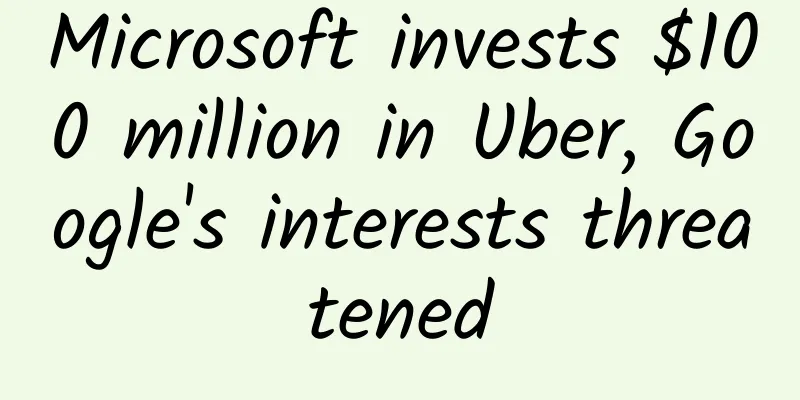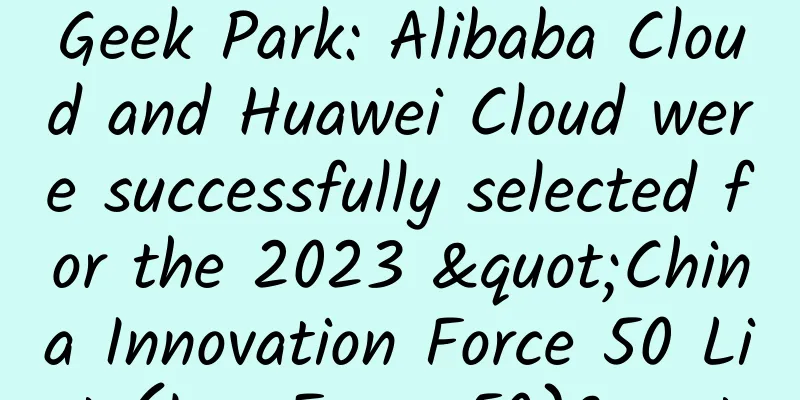Microsoft invests $100 million in Uber, Google's interests threatened

|
Recently, Uber, the world's largest mobile travel service provider, completed a new round of financing with a total of US$1 billion. The company's valuation has also reached US$50 billion, making it the world's most highly valued non-listed technology company. It is worth noting that Microsoft invested US$100 million in Uber this time, which was beyond the media's expectations. As the relationship between Uber and its long-time ally Google has cooled, Microsoft is taking advantage of the opportunity to reap the benefits. Bloomberg News quoted people familiar with the matter as saying that Microsoft's investment in Uber is $100 million, which is the largest investment in Uber. In addition to Microsoft, other investors include Indian venture capital firm Bennett Coleman. As a winner of Toutiao's Qingyun Plan and Baijiahao's Bai+ Plan, the 2019 Baidu Digital Author of the Year, the Baijiahao's Most Popular Author in the Technology Field, the 2019 Sogou Technology and Culture Author, and the 2021 Baijiahao Quarterly Influential Creator, he has won many awards, including the 2013 Sohu Best Industry Media Person, the 2015 China New Media Entrepreneurship Competition Beijing Third Place, the 2015 Guangmang Experience Award, the 2015 China New Media Entrepreneurship Competition Finals Third Place, and the 2018 Baidu Dynamic Annual Powerful Celebrity. |
Recommend
World Cycling Day丨The secret of balance in small wheels: you only need strength and you to make the bicycle run smoothly
Produced by: Science Popularization China Author:...
How do emerging social tools break the monetization curse? Here are 3 suggestions
Meitu XiuXiu, which is considered to best represe...
Xiaomi in India: Poaching Google employees while showing goodwill to Android One
After Google teamed up with three major Indian lo...
Do you feel pain when riding? Learn the correct riding posture →
The weather is getting warmer More people are rid...
In the education industry, what are the “tips and tricks” for placing information flow advertisements?
The battle for information flow is in full swing....
A new way to boost the COVID-19 vaccine is here: a chart to help you understand sequential boosting
Recently, the National Health Commission has begu...
Why can your activities attract fans but fail to retain them?
The purpose of organizing activities is not to co...
What’s the matter with the 11.2 billion yuan refund for job retention? Which companies can apply? How to apply? Attached is the application process!
What’s the matter with the 11.2 billion yuan refu...
10 common misunderstandings about operations!
In writing this article, I would like to clarify ...
A microwave oven is the key to 2-nanometer chip manufacturing
A home microwave oven modified by scientists is h...
Tencent is not the rival of China Mobile, China Telecom and China Unicom. Will 5G messaging rebuild the Internet ecosystem?
Many times, once you stand on the high ground of ...
91 Ten Articles-New Energy Vehicle Industry Briefing: Xiaomi may use Great Wall Motors production line to manufacture cars
1. Li Zhenyu, Vice President of Baidu Group and G...
How to plan an operational topic by taking advantage of hot topics?
Following hot topics is an essential skill for co...
How much does a pound of chili pepper cost in 2022? Why is the price so high? Attached is the reason for the price increase!
Millet pepper is a multi-purpose pepper variety t...
With Huawei and Xiaomi in front and OV and Meizu behind, how long can Liu Zuohu's OnePlus last?
Recently, OnePlus released this year's flagshi...









